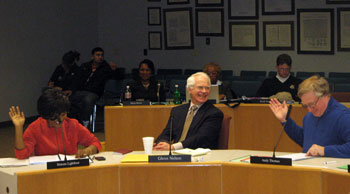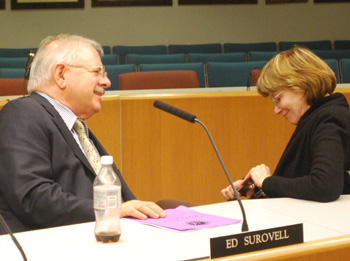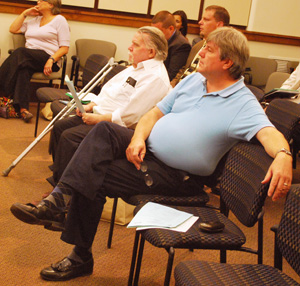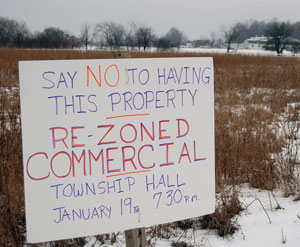At a Jan. 18, 2011 hearing, the 22nd Circuit Court judge Melinda Morris entertained two motions by the city of Ann Arbor in response to a lawsuit filed by The Ann Arbor Chronicle.
The lawsuit alleged that during a July 19, 2010 session held by the city council, the council had violated the Michigan Open Meetings Act – by voting to enter into a closed session to discuss written attorney-client privileged communication, but instead straying from that narrow purpose to reach a public policy decision about medical marijuana businesses.
It’s uncontroversial that the council did make a decision in an open session on Aug. 5, 2010 to develop an ordinance that would ensconce medical marijuana businesses in local zoning regulations, by first establishing a moratorium on establishing additional medical marijuana businesses. What The Chronicle essentially alleged was that the Aug. 5 decision to develop local legislation on medical marijuana businesses had already been determined at the July 19 closed session.
The first motion by the city of Ann Arbor was rejected by Judge Morris. The city had asked her to find that The Chronicle’s suit was frivolous, not managing even to state a claim, and further asked that sanctions and fines be imposed.
However, on the city’s second motion – which asked Morris to find that there was insufficient evidence of an OMA violation to warrant subjecting councilmembers and the city attorney to depositions, and that she should dismiss the claim – Morris ruled in favor of the city of Ann Arbor.
In reaching the conclusion that additional discovery of facts should not be allowed, Morris appeared to give significant weight to councilmember depositions affidavits, which they all signed, asserting that they had voted to go into the closed session on July 19, 2010 in part to discuss a May 28, 2010 legal advice memo written by the city attorney, Stephen Postema. All the affidavits further asserted that the council had not made any decision during the July 19 closed session. Morris also appeared to give significant weight to the idea that even if an OMA violation occurred on July 19, then it would have been “cured” by the council’s deliberations and decision made during their open session at the Aug. 5, 2010 meeting.
In this report, we will review some points of legal interpretation on which we disagree with Judge Morris, including the significance of a surprising omission in the affidavits signed by the city attorney and the mayor.
But we begin with the observation that since being served The Chronicle’s lawsuit six months ago – about a closed session conducted on the claimed basis of attorney-client privilege – the city council has not held a single closed session of that kind. That’s easily the longest closed-session-free span the council has achieved for attorney-client privileged-based sessions in more than two years.
That seems to reflect an implicit acknowledgment by the city attorney and the council that they’d been holding more of these kinds of closed sessions than were actually warranted. We gave serious consideration to filing an appeal in this case. The council’s apparent change in behavior has convinced us that our decision not to allocate additional financial resources to an appeal was the right one. Part of our goal was to rectify a specific pattern of inappropriate behavior on the council’s part, and we appear to have achieved that.
Compared to the possibility of establishing new case law on a specific point, we think a more general approach to reform of the Michigan Open Meetings Act and the Freedom of Information Act, through legislative efforts, is likely to yield stronger and longer-lasting improvements in these open government laws. [Full Story]










